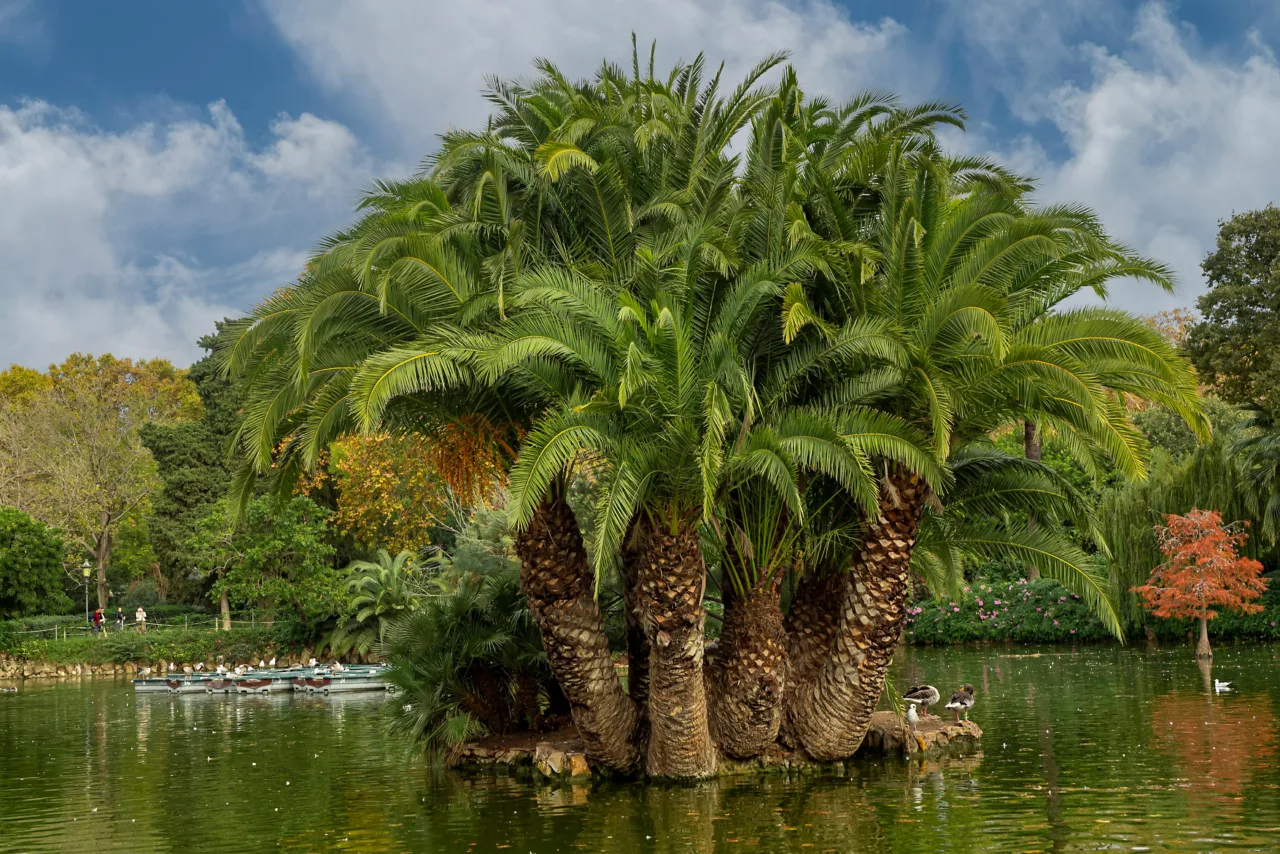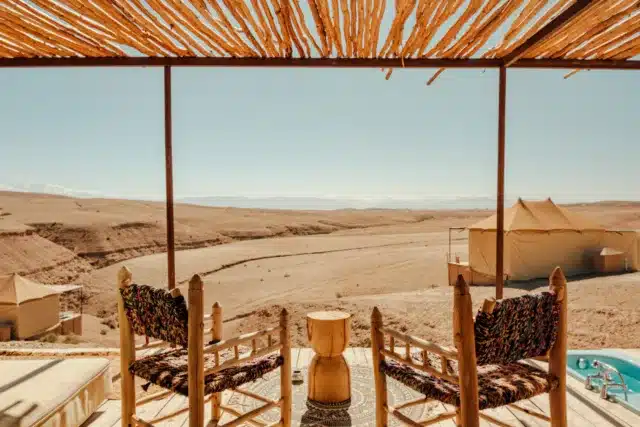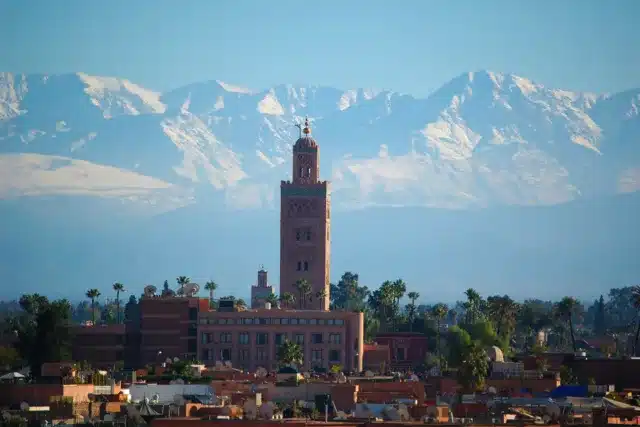
Agritourism Morocco: Fostering Sustainable Luxury Through Farming, Culture and Innovation
Agritourism Morocco is pioneering a new era of luxury hospitality that unites visitors with the country’s rich agricultural traditions and authentic cultural experiences. Tourism today transcends mere comfort and leisure; more visitors than ever seek genuine engagement with nature and local communities. Around Marrakech – famed for its fertile plains and rich cultural identity – agritourism has emerged as a dynamic model combining luxurious living with sustainability and heritage preservation.
1. Deliberating Agritourism in Morocco
Agritourism combines tourism, agriculture and culture into an immersive cultural experience for visitors – offering visitors the chance to explore rural life while learning traditional farming methods and tasting local cuisine and crafts. When visiting Morocco as part of an agritourism experience, guests may stay in high-end villas surrounded by olive groves, vineyards or argan orchards while taking part in farm-to-table dining experiences and guided experiences.
Moroccan countryside provides an ideal setting for this model of tourism. From its fertile Haouz Plains near Marrakech to the foothills of the Atlas Mountains, rural Morocco abounds with natural beauty as well as rich cultural traditions that need preservation; Agritourism initiatives help maintain these traditions while connecting modern travelers to rural communities.
Learn more about Morocco’s growing eco-tourism strategy from the Moroccan National Tourism Office (Visit Morocco) .
2. Exploring The Connection Between Luxury Villas and Agritourism
Modern luxury hospitality doesn’t equate with estranging oneself from nature; rather it means integrating it. Many investors and developers are realizing the potential of marrying agritourism Morocco with luxury villa design for sustainable living spaces that respect land use while honoring local identity.
Organic gardens, solar panels, grey water recycling systems and renewable materials have become standard features of high-end rural properties, offering guests five-star comfort while tasting organic produce grown onsite or participating in olive harvesting or culinary workshops.
Integration creates an unparalleled value proposition: travelers experience exclusivity and environmental awareness in one package, while for developers the agritourism Morocco model creates economic resilience by diversifying income sources – hospitality, agriculture and eco-tourism can be seamlessly combined in one project.
3. Strengthen Local Farming and Communities
At its core, agritourism Morocco involves building relationships with local farmers, artisans and residents. Many successful projects around Marrakech have established strong ties with surrounding villages so that a portion of tourism revenue remains within their communities.
Local farmers supply fresh ingredients to villa kitchens, artisans create handmade decor items, and cultural guides offer authentic experiences and storytelling. This approach strengthens Morocco’s rural economy while protecting intangible heritage such as traditional irrigation systems (“khettaras”) or ancestral olive-pressing techniques.
Such community-driven collaboration enriches visitor experiences. Not only are guests exposed to agricultural practices but they can participate in them, developing an appreciation of Moroccan craftsmanship and rural life.
4. Long-Term Sustainability Value Creation
One of the major draws of agritourism Morocco is its alignment with global sustainability goals. As environmental awareness increases, eco-friendly accommodations become more desirable among both tourists and investors.
Agritourism developments place special importance on energy efficiency, biodiversity protection, and low-impact construction. Villas constructed using locally sourced materials like tadelakt, clay and stone fit seamlessly into their environments while simultaneously reducing environmental impact while maintaining authentic aesthetics.
From an investment perspective, these projects offer long-term security. Eco-certified properties boast greater international appeal, higher occupancy rates and stronger brand positioning – qualities which eco-certified properties enjoy as an added perk. In Morocco where tourism accounts for much of GDP growth, integrating agritourism guarantees sustainable development that brings benefits both investors and communities alike.
Discover sustainable investment practices in Morocco on the Orchid Island Real Estate Guide.
5. Cultural Tourism as an Integrator
Culture is at the core of agritourism in Morocco. Beyond agriculture, this encompasses food, architecture and social traditions that define Moroccan identity. Guests staying in luxury villas often take part in cooking classes using farm produce; visit weekly souks (markets); or explore nearby kasbahs or heritage sites.
Culture and comfort combine perfectly, drawing in travelers who prioritize authenticity over uniformity. Moroccan hospitality or “l’hospitalite marocaine” forms the backbone of their experience, marrying modern services with timeless warmth.
By placing culture at its heart, agritourism not only draws in visitors but also fosters pride and cohesion within local populations.
6. Agritourism as an Investment Opportunity
Real estate and hospitality investors see Morocco’s agritourism sector as an appealing opportunity, particularly those in Marrakech, Essaouira and Atlas regions. Projects which combine luxury villas with agricultural or ecological components are becoming more desirable among investors.
Investors benefit from multiple revenue streams – accommodations, on-site production (olive oil, honey and herbs), cultural events – while appealing to eco-conscious and high spending clientele. Morocco also supports sustainable tourism through incentives and policies encouraging green architecture and rural development.
As a result, we created an investment model that balances profitability with environmental and social responsibility — an approach aligned with UNWTO’s sustainable tourism goals.
7. The Future Outlook
As climate concerns and environmental awareness shift the travel industry, agritourism Morocco looks set to emerge as a cornerstone of its tourism strategy. Combining high-end living with ecological and cultural awareness has established Morocco as a pioneering player in the eco-luxury market.
Marrakech’s future lies in projects that combine nature, comfort, and culture – projects which provide both market demand as well as contributing to Morocco’s sustainable development goals. Developers taking this holistic approach not only meet market requirements but will also contribute to Morocco’s vision for sustainable development.
Agritourism Morocco provides more than an alternative travel experience – it outlines a path for the future of luxury hospitality. By blending agriculture, sustainability and authentic cultural experiences into their practices, Agritourism Morocco could alter what high-end tourism means today.
Are you eager to explore investment or development opportunities in Morocco’s rapidly expanding agritourism sector?
Contact Orchid Island today and discover how you can take part in sustainable real estate projects that blend elegance, authenticity, and ecological balance across Morocco’s most captivating landscapes.



Leave a Reply